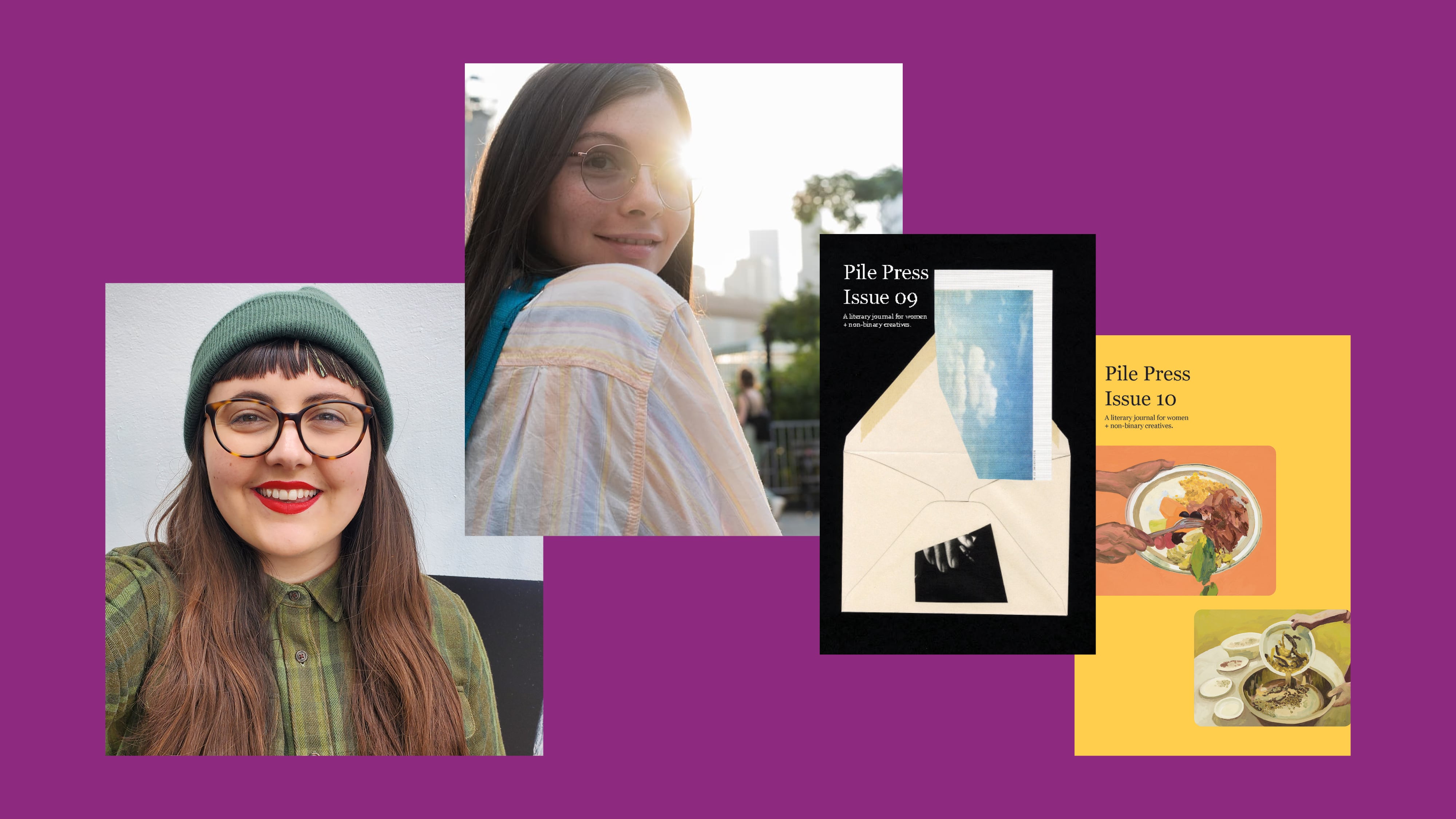SarahAnn Harvey says she wanted to start her own indie book press for as long as she could remember.
“I was always intrigued with every aspect of the book-making process and the general DIY punk nature of small press publications,” Harvey tells WW. She learned about the writer’s experience with publishing by seeing her own poems printed by various small presses and comparing how much (or little) a piece was edited once it was signed.
“I knew I wanted our press to be a space where there wasn’t much, if anything, changed from the pieces offered,” she says. “I want our writers and artists to feel safe and seen in their works.”
After interning at Portland press Microcosm, Harvey learned a little bit about every other aspect of the industry, from marketing and layout to printing and distribution. She began outlining what she wanted to do with her own press. One constant stood out during her experiences as both a writer and budding publisher: She saw that both communities were heavily cis-male dominated.
“I felt I could change that, at least a little,” Harvey says. She wanted to “create a spotlight for those often underrepresented, women and nonbinary creatives. I also wanted to keep this space supportive of the artists and makers in our local area.”
The result, Pile Press, is committed to printing each issue of its namesake biannual literary journal by a rotating cast of local printers and, whenever possible, delivering literary journals via bike to most indie bookstores in the area: Powell’s, Broadway Books, Belmont Books and Bishop & Wilde, to name a few.
Lauren Paredes, co-founding editor of Portland’s First Matter Press, sums up the feel of a typical edition of Pile Press, referring to Issue 10 as “a brief universe of a book where decay, death, grief, and loneliness live alongside plums, persimmon, tendrils, oranges, and magnolia.” And Harvey describes Pile as an alternative publishing collective in both spirit and form.
“It is a physical object and space created for and by us,” she says. “My hope is one day Pile can grow to be much more collective in the practical sense—being a collaborative publishing project with other artists and writers in a physical space of our own.”
Pile Press publishes it all: poetry, short fiction, creative nonfiction and visual art by women and nonbinary writers. Portland and Oregon writers are currently the most consistently featured in the journals, but Pile Press submissions are open to writers from across the United States. And though there aren’t themes to each submission call, Harvey and editor April Hernandez are often surprised by how naturally themes bubble up, responding to what’s going on in the world. The magazine’s 11th issue comes out in November.
“There is a real sense of communal processing and expression that comes across in the submissions nearly every time,” Harvey says. “A few issues back, one of our journals was published shortly after the overturning of Roe v. Wade, and many of the writings and art pieces included in that journal are dealing with and responding to that moment in time.”
Another Pile Press journal is CHUNK, an Oregon-centric black-and-white broadsheet print publication that celebrates the state’s vibrant art scenes. “While I keep the journal fairly professional, CHUNK gets to be my weird li’l oddball project that can wander in whatever direction we all choose,” Harvey says.
For CHUNK’s particular brand of quirk, the Pile Press team brought on Portland musician and writer Tripp Watson to help edit and contribute. Open to all Oregon residents on a rolling basis, CHUNK publishes a little bit of everything: flash fiction, book and movie reviews, artist interviews, recipes, art and comics. Harvey says she and Pile Press are into print media for the long haul.
“My hope is that Pile can start saving for a newspaper box for CHUNK,” Harvey adds. “Or even get our hands on an old retired one. That would be amazing!”

